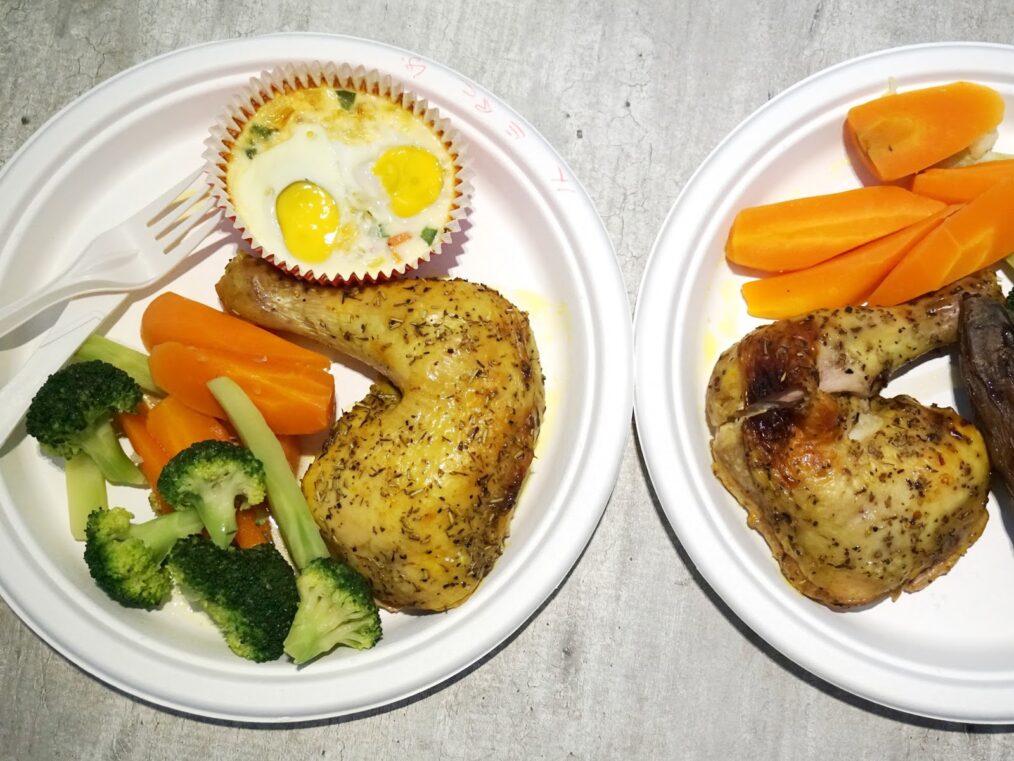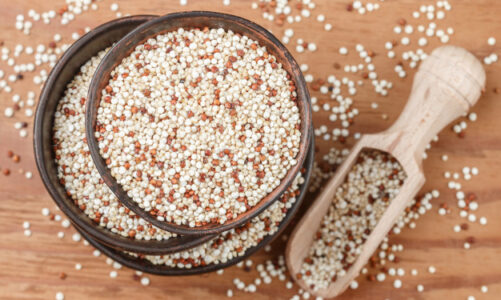If you are one of those fortunate people that actually takes care about what foodstuff passes your lips, you must have spent many pondering hours on the following question.
There are so many different diets and eating regimes but which ones are really healthy and which one is right for me.
Diets Galore

To demonstrate the point, you can check out this list of 265 diets listed on a popular weight loss website.
The more prominent ones that stand out are the South Beach Diet, Mediterranean Diet, The Atkins Diet, The Paleo Diet and the old classic Vegan or Vegetarian diets.
The major differences between them stem from the balance of daily intake between the 3 main nutrition types Protein, Fat and Carbohydrates, as well as the Caloric and Micro Nutrient content.
The main divide is along the lines of High Protein/Low Carbs (like Atkins and Paleo) and Low Fat/High Carb (Vegan and most others).
Two Opposing Approaches
There is an interesting ( and heated) debate between the proponents of these 2 diet approaches on this site.
The article contains the arguents for each diet by a authoritative figure in each approach as well as a panel of moderators to give a final verdict on different topics like “Eating Animals”, “Eating Grains”, “Impact on the environment” and so on.
The bottom line is that Vegans consider the eating of animal products ethically and environmentally unacceptable as well as too much fat intake for humans anyway. Paleo’s single out grains and dairy as the big culprits.
How to Choose

To go into any of the detailed nutritional science analysis and comparisons seems to be a never ending process of argument and counter argument. So what to do? Why dont we take the easy route and look for our answers in nature.
Biological studies discover over and over how perfectly adapted each living organism is in its particular environment and has been for hundreds of thousands of years for most.
Furthermore Darwin told us that all species are constantly changing and adapting but these changes of major vital functions like metabolism may take tens to hundreds of thousands of years for complex species (like homo sapiens).
So lets see what facts do we have so far:

1. Our human race stems from ancestors that date back many hundreds of thousands of years ago. Our most recent ancestor dates back a few tens of thousands of years ago
2. Our ancestors were perfectly adapted to their environment. We know that because of the fact that they survived, procreated and thus we are here today.
3. The past few generations of our species are becoming more and more unhealthy and less adapted to perform physical activity efficiently due to the occurrence of widespread obesity over many populations of the world. We may have longer life expectancy but we on average need serious amounts of pharmaceutical products to stay alive towards the latter parts of our lives. Something our forefathers did not have access to but still survived.
4. Nutritional science apart, does it not make perfect sense to fully accept the fact that whatever food they had access to for the biggest part of our evolution, was and is the correct food for our species.
So if we cannot disprove the reasoning above, then the argument for the Paleo diet and its derivatives should definitely rank up there among the top of the diet hit parade.
The only challenge is to accurately determine exactly what were the food choices available during the biggest part of our evolution.
One thing is certain, we can definitely rule out corn, wheat and any of its derived food products because archeological consensus is that our hunter-gatherer lifestyle evolved into an agricultural lifestyle over the period of around 10 000 years ago.
This period corresponds to less than 1 percent of our species’ evolution cycle. So it would not be incorrect to reason that a significant percentage of our species did not have enough time to evolve fully into the optimal metabolism of agricultural food like wheat, corn and dairy products.
This is echoed by the relatively high occurrence of gluten (wheat) and casein (milk) intolerance in many populations.
Enter the Caveman

So to maintain our Caveman bodies we have to feed it Caveman food. Food that can be hunted, fished, gathered from the trees, on the ground surface and under the surface of plants and aimals that were around at the time.
Evidence of the massive health benefits offered by the Paleo diet exists. The most impressive evidence that I came across so far is the amazing recovery story of Dr Terry Wahls.
She suffered from secondary progressive multiple sclerosis to the stage of confinement to a wheelchair. Her personal research lead her to the Paleo diet which she started to follow and a year later she was leading a healthy, active life.
Traditional Pharmaceutical products could not even slow down the deterioration of her bodily functions due to the MS onslaught.
This perfectly adapted diet not only slowed down the deterioration but healed her and kept her healthy for the past 4 years already.
The Verdict
Choosing a diet is a very personal and emotional task and often guided by your reaction to a very cleverly crafted sales pitch of the custodians or agents of a particular diet.
My advice is to always ask the question:- Would my grandfather of twenty thousand generations ago have had access to the food on this diet list.
If yes, go for it and always take care to focus on the foods that meet the Caveman criterion and steer clear from everything else on the list that was not around at 10 000 BC.
This may seem like a tall order to disrupt your life-long eating habits so radically but the benefits of a long and healthy medication-free life makes this choice definitely worth considering.
Stay Healthy and Happy.




